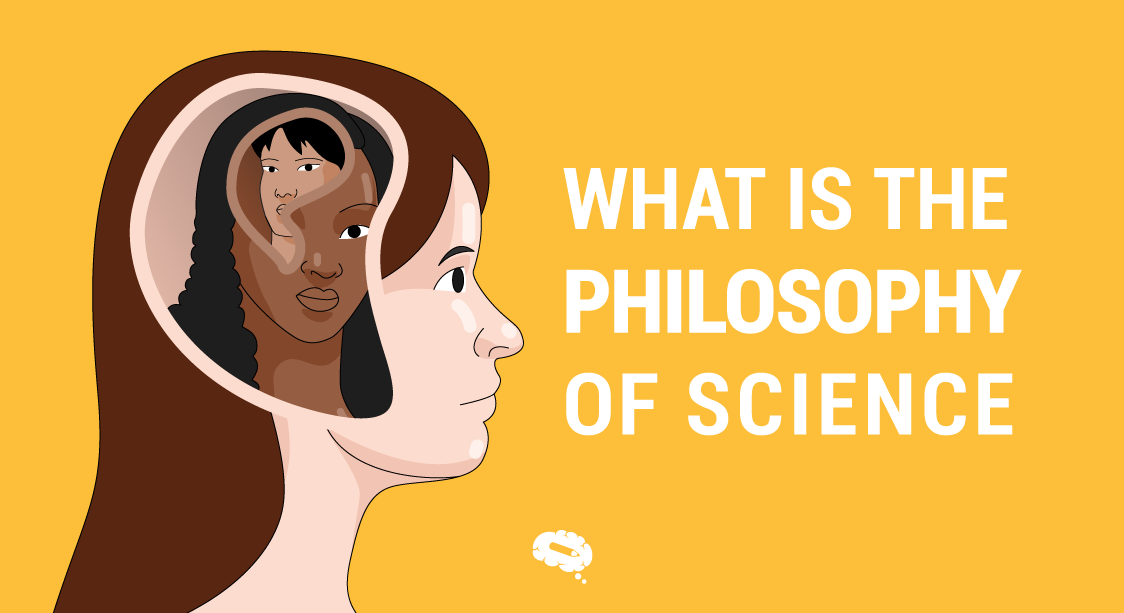Science has become an essential aspect of modern society, allowing us to gain a better knowledge of the world around us and develop novel technology to address complicated problems. However, the practice of science is not as simple as it appears. Science is founded on specific assumptions, ideas, and procedures that are affected by a broader philosophical framework known as scientific philosophy.
Science philosophy is concerned with science’s foundations, methods, and implications. It is a discipline of philosophy that investigates topics like what science is, how science works, what distinguishes scientific knowledge from other types of knowledge, and what the boundaries of scientific inquiry are.
By the end of this article, you will have a better understanding of the philosophy of science and its role in molding our view of the natural world.
What is the philosophy of science?
Philosophy of science is a discipline of philosophy concerned with comprehending the nature, methods, and consequences of science. It investigates the connection between scientific ideas, models, and data, as well as the underlying assumptions and notions that drive scientific activity.
At its foundation, the philosophy of science examines basic concerns regarding the nature of scientific knowledge by making inquiries such as:
- What exactly is science, and how is it different from other types of knowledge?
- What are the prerequisites for scientific knowledge, and how do scientific assertions get justified?
- Why do scientists continue to rely on models and concepts that they are aware are at least partially incorrect? Newton’s physics for instance.
- What are the boundaries of scientific inquiry, and how do we utilize empirical data to verify scientific hypotheses?
- How do social, political, and historical aspects impact scientific research, and how do these elements determine scientific knowledge development?
- What exactly is natural law? Are there any non-physical disciplines such as biology and psychology?
The philosophy of science relies on a variety of philosophical traditions to answer these problems, including epistemology, empiricism, ethics, among others. It also participates in scientific practice, frequently collaborating with scientists to create and enhance ideas and methodologies.
The connection between theory and evidence is an important topic of study in the philosophy of science. Scientific theories and models seek to explain observable events, but their final worth is determined by their capacity to make accurate predictions and resist empirical testing. The philosophy of science investigates how hypotheses are developed, tested, and evaluated for truth or falsehood based on empirical evidence.
The importance of social and historical aspects in scientific study is another prominent topic of investigation in philosophy of science. Beyond pure scientific facts, scientists are impacted by cultural biases, social conventions, and historical circumstances. The philosophy of science analyzes how these elements impact scientific investigation and how they might influence scientific knowledge generation and acceptance.
Defining science and non-science
The demarcation problem, which refers to the difficulty in discriminating between scientific and non-scientific beliefs, techniques, and practices, is a long-standing dilemma in the philosophy of science. This issue arises because there is no commonly acknowledged set of criteria for categorizing a theory or practice as scientific or non-scientific.
Karl Popper, a well-known philosopher of science, highlighted the demarcation problem as one of the major issues in science philosophy. Popper contended that scientific ideas must meet the falsifiability criteria; falsifiability is a deductive standard for evaluating scientific theories and hypotheses; a theory or hypothesis is falsifiable (or refutable) if it can be logically disproved by an empirical test. This standard is significant since it allows scientific hypotheses to be rigorously tested and evaluated, as well as allowing scientists to develop and enhance their theories throughout time.
However, not all theories fulfill the criteria for falsifiability. Some theories, for example, may rely on untestable assumptions or unobservable events, making empirical testing difficult or impossible. These beliefs are classified as pseudoscientific as they claim to be scientific but lack the rigor and empirical grounding of true scientific theories.
Psychoanalysis, creation science, and historical materialism are just a few examples of theories that have been the topic of scientific controversy:
- Psychoanalysis, the work of Sigmund Freud, has been challenged for its emphasis on subjective interpretations and untestable assertions about the human mind.
- The scientific community has rejected creation science, which holds that the universe was created by a divine being, due to its lack of factual evidence and commitment to religious dogma.
- Historical materialism, a Marxist theory of history, has been criticized for its deterministic and reductionist approach to the processes of society and the economy.
In general, the demarcation problem in the philosophy of science remains a contested subject, with various researchers raising different criteria and techniques to differentiate between science and non-science. The significance of this matter, however, cannot be overstated, since it has important consequences for the validity and dependability of scientific knowledge, as well as the role of science in society.
The branches of philosophy of science
Philosophy of science is an extensive field that includes a range of sub-disciplines and methods. Now that the article has addressed the basic question, “What is the philosophy of science?”, it’s time to go through the branches:
Epistemology
Epistemology is a discipline of philosophy that studies the nature of knowledge and how it is obtained. Epistemology is concerned with questions regarding the nature of scientific knowledge, the techniques used to obtain it, and the standards used to assess scientific assertions.
Empiricism
This is a philosophical approach that stresses the significance of empirical evidence in knowledge development. Empiricism is concerned with the importance of observation and experimentation in scientific investigation, as well as the extent to which scientific hypotheses may be justified on the basis of empirical evidence.
Ethics
This type of philosophy addresses the problems related to right and wrong, good and bad, the moral ideals that drive human action, basically the ethical implications of scientific research and scientists’ societal duties.
Induction
The process of reasoning from specific observations to broader conclusions is known as induction, which is the problem of justifying the inference from specific observations to universal rules or hypotheses. Inductive reasoning is a crucial aspect of scientific investigation, yet it is also open to criticism and debate.
You notice that whenever you drop an apple, it falls to the ground. Based on this observation, you infer that when apples are dropped, they all fall to the ground.
Deduction
Deduction is very similar to inductive reasoning, although it is frequently seen to be more rigorous than inductive reasoning. The deduction is used to put scientific ideas to the test by making specific predictions or hypotheses based on them.
You believe that all living beings need oxygen to survive. You deduct that removing oxygen from an environment containing live beings will cause them to die.
Parsimony/Occam’s razor
The principle of parsimony is the preference for the simplest explanation that can account for a phenomena. Occam’s razor is a specific statement of this concept, credited to the medieval philosopher William of Ockham, which asserts that no more assumptions should be made than are necessary.
Paradigm shifts and scientific revolutions
Thomas Kuhn proposed the concepts of paradigm shifts and scientific revolutions in his book “The Structure of Scientific Revolutions.” Kuhn proposed that scientific development occurs in two stages: normal science, in which scientists operate within a certain theoretical framework or paradigm, and scientific revolution, in which a new paradigm arises to replace the previous one. Paradigm shifts and scientific revolutions entail changes in a scientific discipline’s core assumptions, concepts, and methodologies.
Philosophy of particular sciences
Here is an overview of philosophy related to particular sciences:
Biology philosophy
This field of philosophy of science investigates the nature of life and living systems, as well as biological methodologies and concepts. It also covers ethical and social concerns associated with biological research, as well as the relationship between biology and other disciplines such as chemistry and physics.
Medicine philosophy
Philosophy of medicine is a subfield of philosophy of science that investigates the theoretical and conceptual underpinnings of medical knowledge and practice. It investigates the nature of health and illnesses, medical aims, the ethical and social consequences of medical practice, and medical research methodologies and concepts.
Psychology philosophy
This field of philosophy of science is concerned with the philosophical underpinnings of psychology, such as the nature of the mind, consciousness, and perception. It also investigates the connection between psychology and other disciplines such as neuroscience and cognitive science, as well as ethical and social concerns regarding psychological research.
Physics philosophy
This field of scientific philosophy is concerned with the fundamentals of physics, such as the nature of space, time, matter, and energy. It also looks at how physical theories like relativity and quantum physics affect our knowledge of the universe.
Social science philosophy
This field of philosophy of science is concerned with the nature of social phenomena as well as the methods of social investigation. It explores the connection between social science and other sciences such as psychology and economics, as well as ethical and political concerns concerning social research.
The world’s largest scientifically-accurate illustrations gallery
Having a tool with illustrations and templates, such as Mind The Graph, may help researchers convey their study findings more effectively and improve the overall quality of their work. Start using Mind The Graph to communicate your work more effectively, save time, maintain consistency, and increase the overall impact of your research.


Subscribe to our newsletter
Exclusive high quality content about effective visual
communication in science.





